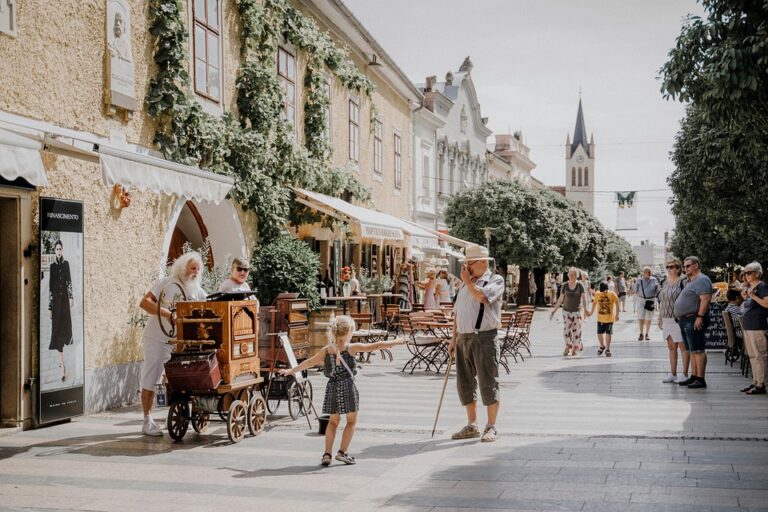Beyond the Music: How Festivals Boost Local Economies through Festival Tourism
Introduction
As summer approaches, the air buzzes with anticipation for one of the most vibrant forms of entertainment: music festivals. While the melodies and performances often take center stage, the impact of these festivals extends far beyond just the music. Festival tourism has surged in recent years, and it’s not just about creating memorable experiences for attendees — it’s about enhancing local economies, creating jobs, and weaving a community thread that benefits everyone.
The Economic Impact of Festival Tourism
A Multibillion-Dollar Industry
Festival tourism generates significant revenue. According to a report from the World Tourism Organization, festivals contribute to over $120 billion to the global economy yearly. This figure continues to grow, fueled by a rising interest in immersive experiences that allow individuals to connect with local cultures. For instance, the iconic Coachella Music and Arts Festival alone injects an estimated $700 million into the local economy, benefiting everything from hotels and restaurants to transportation services.
Job Creation and Community Growth
Festivals are not just a temporary influx of tourists; they create long-term opportunities for local residents. The production of these events requires a massive workforce. The staffing includes not just musicians and artists, but also vendors, security personnel, event planners, and more. A statistic from Eventbrite noted that festivals create an average of 700 jobs for a weekend event. These figures can rise significantly during larger or multi-day festivals, highlighting the importance of festival tourism in providing employment opportunities.
A Ripple Effect on Local Businesses
The presence of festival tourism benefits an array of businesses in the community. Hotels, restaurants, and shops see significant spikes in patronage, translating to increased revenue. During a recent music festival in Austin, Texas, local hotels reported occupancy rates exceeding 95%, and restaurants experienced sales increases by over 60% compared to non-event weekends.
Local Craft and Arts Promotion
Moreover, festivals often host local artisans and craftspeople. This not only helps to spotlight local talent but also allows these artisans to reach a broader audience. Arts and crafts booths at festivals can increase sales for local vendors and provide them the exposure needed to thrive. Thus, festival tourism can play a crucial role in sustaining local arts, culture, and commerce.
Festivals as Engines for Sustainable Development
Environmental Awareness and Community Wellness
Many modern festivals prioritize sustainability and environmental consciousness, aligning with growing consumer awareness around these issues. A notable example is Glastonbury Festival, which implements measures to minimize waste and reduce carbon footprints. This approach inspires attendees to adopt eco-friendly practices, thereby increasing community awareness and encouraging sustainable living well after the event has concluded.
Community Engagement and Inclusivity
Besides the financial aspects, festivals provide a platform for community recognition and inclusivity. Events like the New Orleans Jazz & Heritage Festival celebrate the city’s cultural legacy while involving local voices. This creates a sense of pride among residents, as they come together to showcase their heritage and diversity.
The Challenges and Considerations
Despite their benefits, festivals also come with challenges that can affect local communities, including noise pollution, traffic congestion, and potential displacement of local residents. City planners and festival organizers need to collaborate closely to address these issues. For instance, local governments can implement enhanced infrastructure, such as more robust public transport options, to mitigate traffic problems.
Conclusion: The Future of Festival Tourism
Festival tourism represents a unique intersection of culture, economy, and community. As we move forward, the growth of this sector will increasingly depend on its ability to adapt to changing social and environmental landscapes. By focusing on sustainability, inclusivity, and community well-being, festivals can continue to strengthen local economies while fostering a vibrant cultural exchange.
As festival-goers plan their summer getaways, it’s essential to recognize that each ticket purchased contributes not only to a memorable experience but also works toward boosting the local economy that hosts it. If you’d like to read more about the impact of festivals, check out our articles on 10 Festivals That Changed the Economic Landscape and The Role of Music in Sustainable Development.
Further Reading and Resources
Images Suggestions:
-
Image of a bustling festival crowd.
- Alt Text: Festival Tourism Boosts Local Economies with Crowds Enjoying Events.
- Image of local artisans selling crafts at a festival.
- Alt Text: Festival Tourism Promotes Local Crafts and Artisans.
In crafting this article, focus was placed on delivering high-quality, SEO-optimized content that engages readers while highlighting the remarkable economic and cultural benefits brought about by festival tourism.


